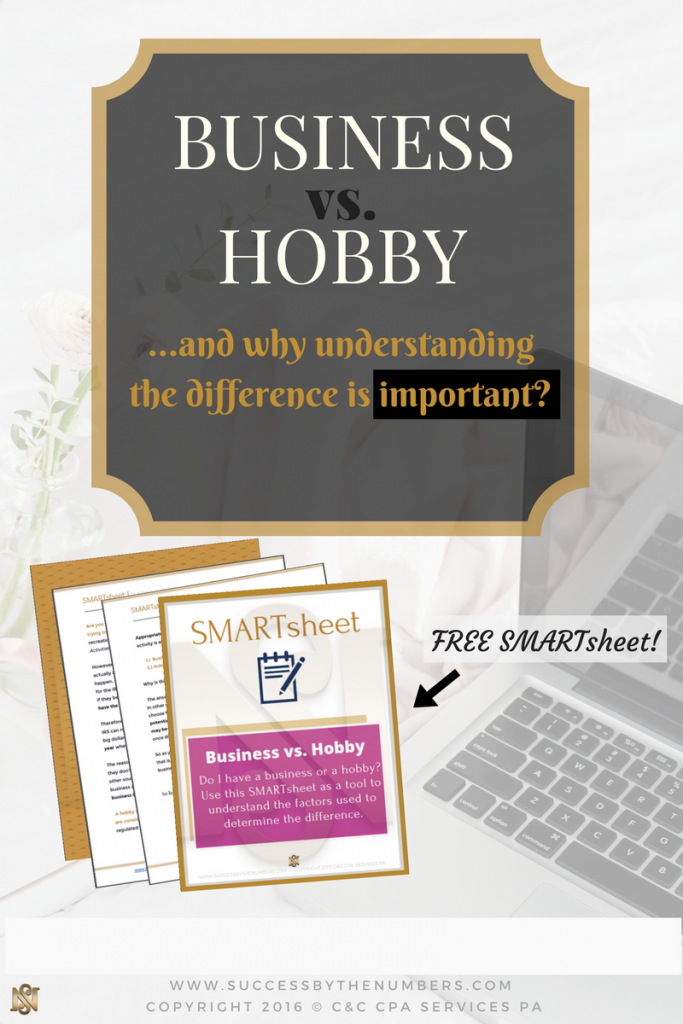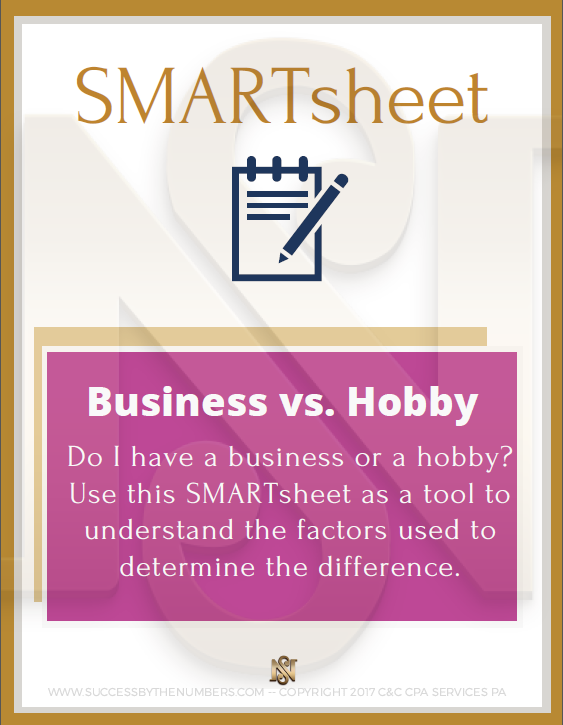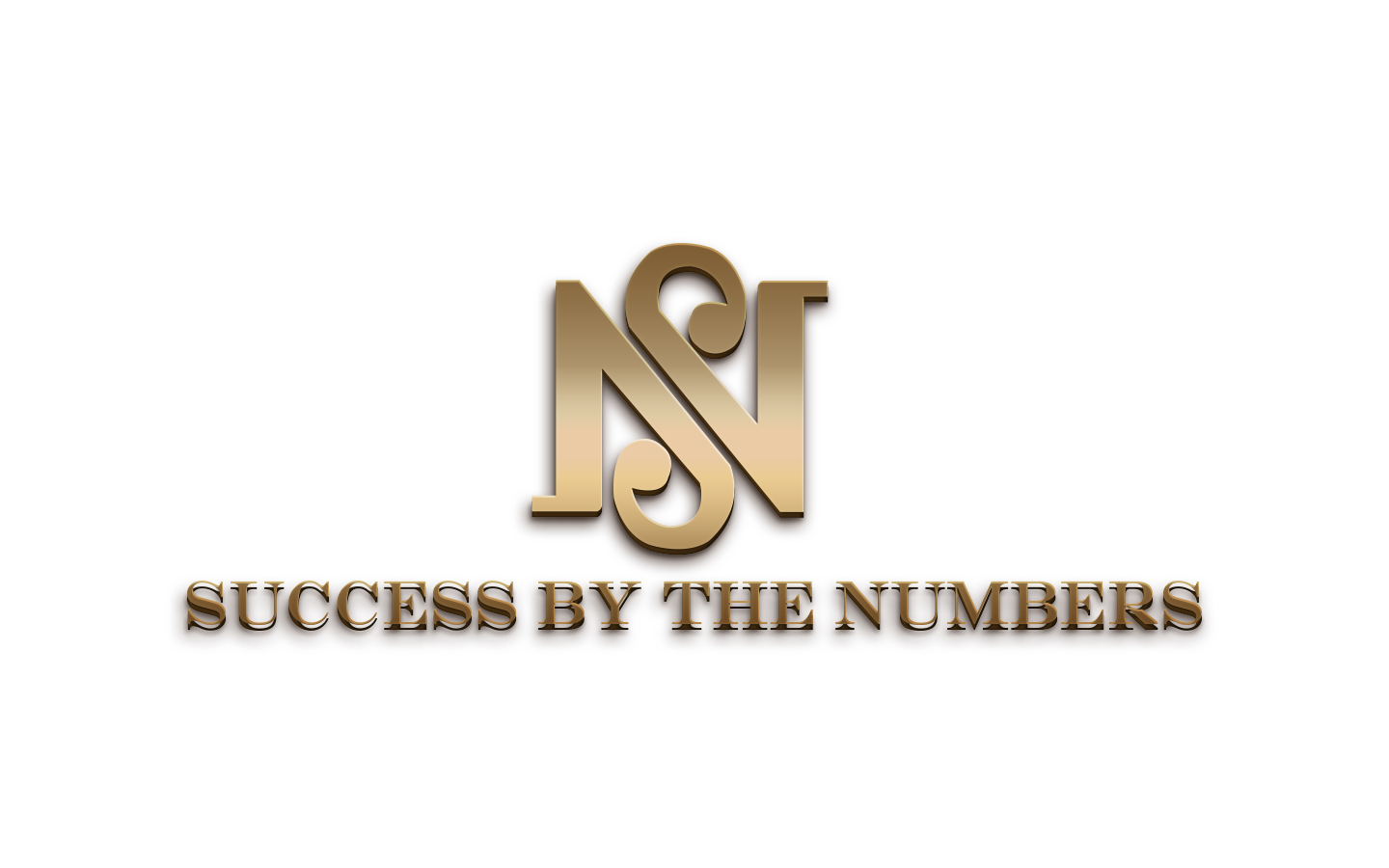Here are some common questions I get asked about all the time from business owners:
Is my business considered a real business for tax purposes?
Can I deduct expenses from my blogging business?
Do I need to report money I made from my side hustle or business? – Such as: Blogging | Direct Sales Consulting: Ex. Selling Mary Kay, Avon, etc. | Selling on Etsy, Ebay, Amazon | Selling Arts & Crafts | Freelancing work? etc.

The first step you need to consider when answering these types of questions is to figure out if your project is a hobby or a business, your situation will determine how you will report taxes (as each of these have differing tax rules.)
The IRS has its own guidelines to determine whether you are running a business or a hobby. It is more advantageous for you to have a business over a hobby since business losses are deductible and are allowed to offset (or reduce) any other source of income that you may have, such as a day job (W-2), which would result in less taxable income thus a lower tax bill or a higher refund.
Nice, right?
Exactly. That is why the IRS regulates this area because they want to make sure that if you are taking advantage of these benefits of deducting business expenses, that these expenses are in fact “true” and “legit” business expenses and not hobby expenses. Hobby expenses are conversely considered personal in nature and thus not allowed to offset any other sources of income.
So, if you are treating your project like a business just make sure you understand the guidelines and follow them as closely as possible to prevent the IRS from knocking on your door and reclassify your business activity as a hobby activity instead – which may lead to monetary damages – Nope, not fun! We do not want that!
The underlying question is –
Why do you do this activity? Do you do it for fun and pleasure, or to make a living?
If your intention is to make a living and/or generate profit from your project/activity then you have a business — you can deduct the cost of your business expenses on your tax return, even to the point of taking a loss.
If you do it just for fun or pleasure then you have a hobby, you can deduct only up to the amount of income you earned from the hobby.
Either way, you are supposed to report your income from either activity on your tax return.
For many people, what they do is just a hobby, something that they do for fun – which sometimes may bring in a little money — AND they would still continue to do it even if they lost money doing it — because it’s genuinely something that they love and enjoy doing.
If you carry on the activity as a hobby you should:
(1) Keep accurate records
(2) Report the amount you made from your hobby, and then
(3) Deduct your hobby expenses on Schedule A, the itemized deductions page.
BUT, depending on other factors, filing a schedule A may or may not be the most beneficial way for you to file. Even if you do file a Schedule A, your hobby expenses are limited.
If your intention is to make money from the activity and you are trying to make it a source of living income, then you may be considered a business for IRS purposes. However, there are certain things that you should be doing when you have a business if you want to be truly considered a business in the eyes of the IRS.
The IRS has a list of factors that they consider when determining if you really are a business.
Here is the list:
-
Does the time and effort put into the activity indicate an intention to make a profit?
-
Do you depend on income from the activity?
-
If there are losses, are they due to circumstances beyond your control or did they occur in the start-up phase of the business?
-
Have you changed methods of operation to improve profitability?
-
Do you have the knowledge needed to carry on the activity as a successful business?
-
Have you made a profit in similar activities in the past?
-
Does the activity make a profit in some years?
-
Do you expect to make a profit in the future from the appreciation of assets used in the activity?

Do you want a detailed breakdown of these factors in a handy & easy to read format? Then click below to download your FREE copy of our educational SMARTsheet "Info-Tool" instantly - a useful tool intended to serve as your "go-to" quick reference guide that you can return to as often as necessary.
The more you can answer yes to on these factors, the easier it will be for you to prove that you are in fact a business.
The cool part about having a business is that you can legally reduce taxable income, specifically during those early years where losses are normally expected.
PROS: You can deduct your expenses, even if your expenses are more than the money your business brought in. This means that you would have a business loss that you can subtract from other income you may have had – for example, from a day job or whatever other income sources you may have had. This would reduce your taxable income and possibly result in a refund, or if you owe, you might owe less than you would have otherwise.
However, please keep in mind that reporting business losses year after year does tend to look a little suspicious and may become a red flag for the IRS.
CONS: If your business generates losses year after year then you’ll look suspicious. Generally, you are expected to show a profit 2 out of 5 years. BUT — it’s ok, do not fret. Even if you don’t have enough profit during this time frame, you are still eligible to take the loss, if you can show that you ran your business with the honest intention of making a profit. This is where the 9 factors listed above really come into play.
My recommendation to you is to KEEP REALLY GOOD RECORDS!!!
It will make your life so much easier. Trust me 😉

Grab Your SMARTsheet
Info-Tool Here!
Want more information? Check out this topic's FREE educational SMARTsheet, by clicking on the download button below.

Author: Rosy Conde, CPA
Rosy Conde is a financial coach and business strategist with a passion for learning and helping others by offering business and financial advise and tips. She serves as a guidance in helping passionate entrepreneurs, who have a desire to launch and run their own successful business in today's modern world.

